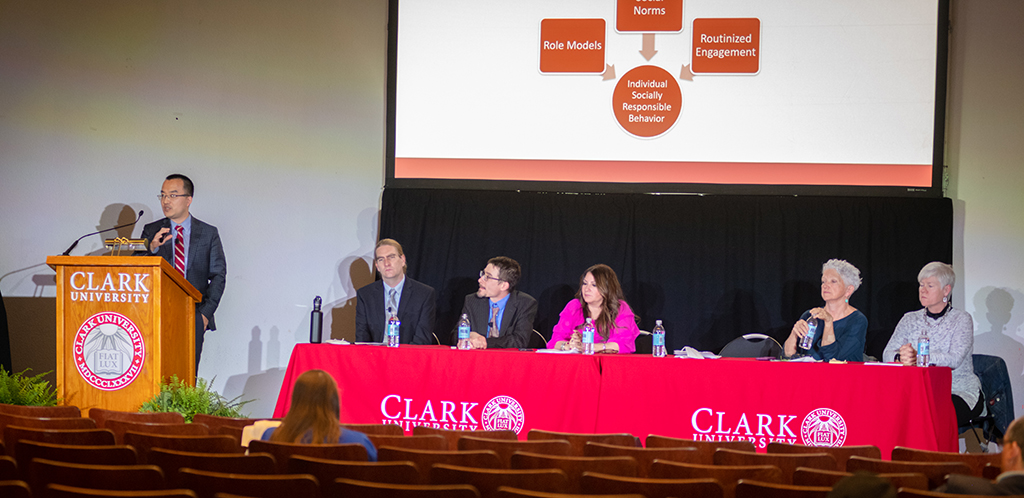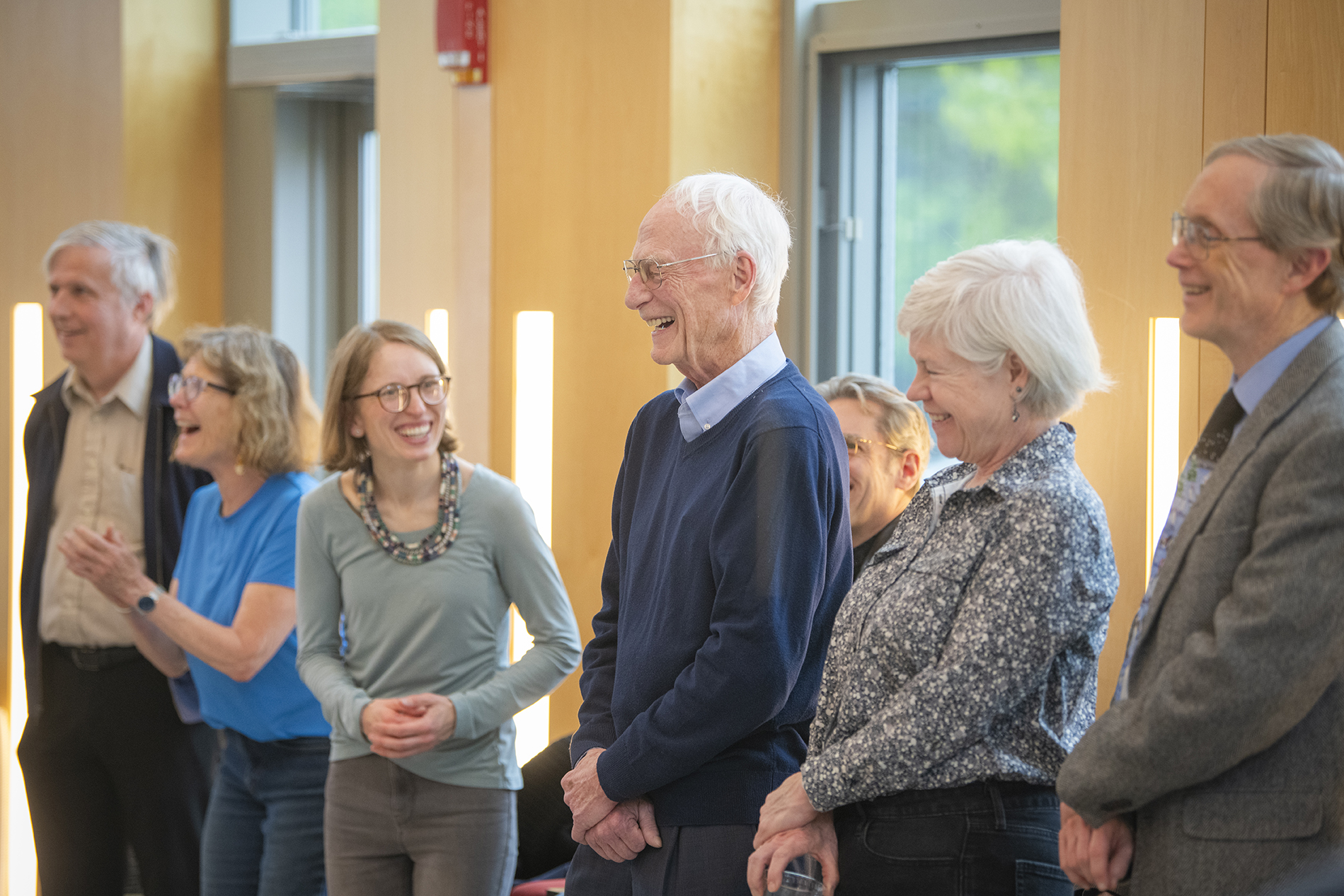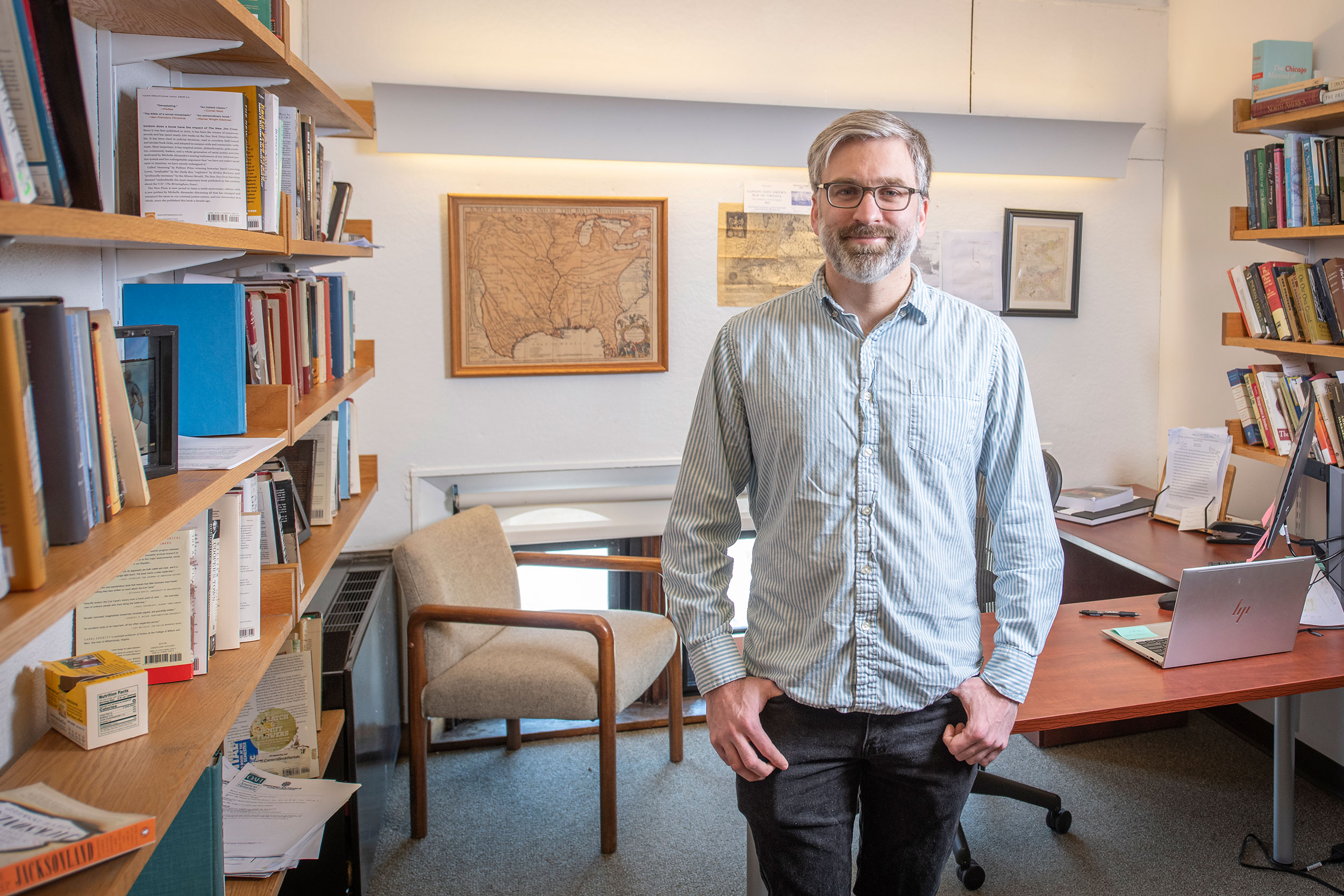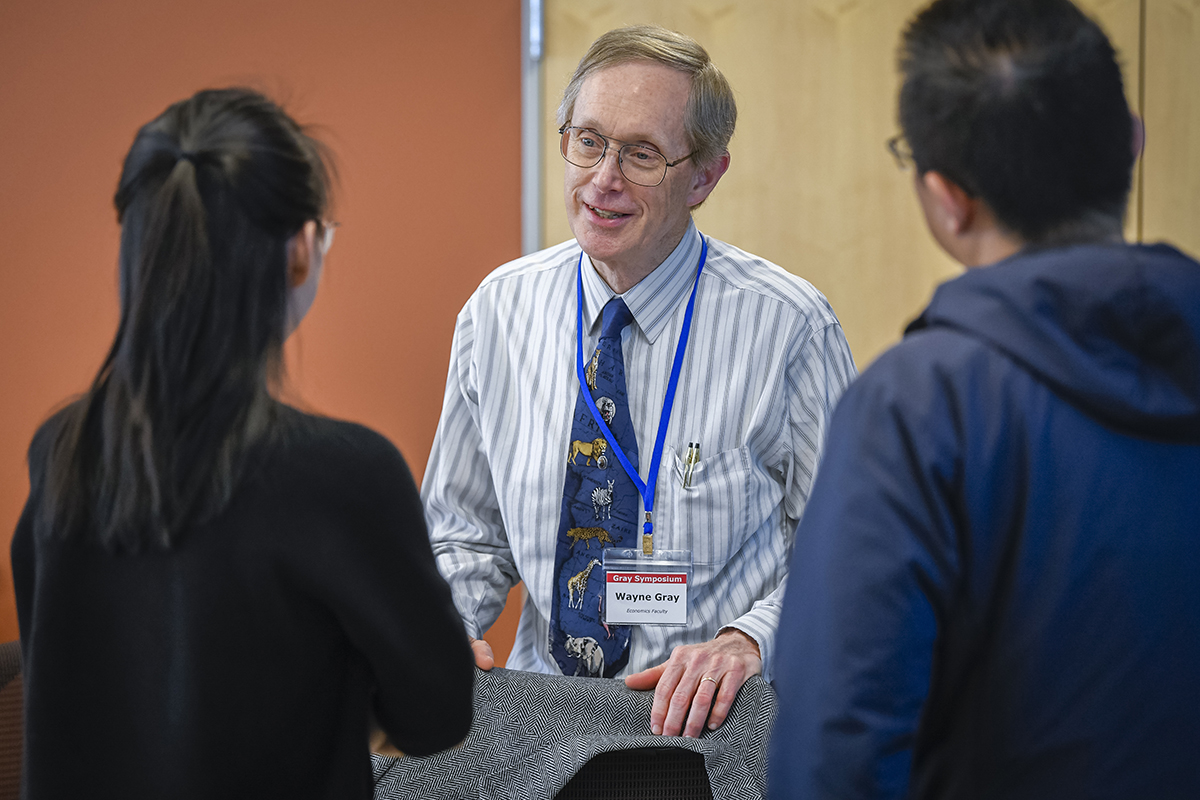Professors examine the impact of COVID-19 from social, economic angles
Professor Zhenyang Tang presents while Professors Nathan Ahlgren, Philip Bergmann, Rosalie Torres Stone, Mary-Ellen Boyle, and Jacqueline Geogehgan look on.
Throughout the COVID-19 pandemic, the world has been inundated by numbers — case counts and deaths; layoffs and business closures. “We live in an interesting age where we have access to a lot of data,” said Nathan Ahlgren, professor of biology, at the start of “Learning Through the Pandemic.” During the April 29 session — part of the Academic Symposium, one of the events held to celebrate the Inauguration of President David B. Fithian — faculty presented information about collaborative data-driven projects they undertook to examine the pandemic from several angles.
Ahlgren, his fellow biology professor Philip Bergmann, and sociology professor Rosalie Torres Stone worked together to explore the progression of the pandemic over time, and how it affected different demographic groups. Age, race and ethnicity, health, and socio-economic factors were included in the study and found to have an impact on the results.
Bergmann explained that the professors used publicly available, county-level COVID-19 data as well as census data to track the changes in the virus’s effect on diverse groups, from which they determined that a dynamic approach to pandemic mitigation effects would be more equitable.
Torres Stone discussed structural racism predictors of COVID-19 in the U.S., including disparities in housing, education, employment, earnings, health care access, and more. The study showed clear racial disparities in how COVID-19 affected different groups, she said, but could not fully capture the impact of structural racism on the disproportionate burden of the pandemic on Black Americans.
The study found that disparities in educational attainment and incarceration were the strongest predictors of COVID-19 cases among the structural racism factors, but that the results varied in the four major regions of the U.S.
Continuing her work on COVID-19 impacts, Torres Stone is collaborating with UMass Medical School researchers on a grant from the National Institutes of Health to study vaccine hesitancy.
Zhenyang (David) Tang, associate professor of finance in the School of Management, presented his study on the impact of corporate social responsibility on individual social distancing in the community. He used Google Community Mobility Reports to measure movement across place categories including retail and recreation, groceries and pharmacies, transit stations, workplaces, and residential areas, comparing the percentage change in mobility from pre-pandemic levels to a time when a stay-at-home order was in place.
Tang found that in communities where businesses exhibited higher levels of corporate social responsibility, residents were more likely to follow guidance and increase social distancing. “Socially responsible firms are associated with socially responsible citizens,” he concluded.
Mary-Ellen Boyle, professor of management, and Jacqueline Geoghegan, professor of economics, teamed up to examine a different type of business: craft breweries. These small businesses surpassed industry predictions during the pandemic — they didn’t just survive, they thrived, Boyle explained.
Instead of seeing a rash of brewery closures in 2021, sales increased by 21% over 2020. While 178 breweries closed in 2021, 646 opened. (That’s half of the restaurant closure rate for the same year.) The professors set out to determine what made the craft beer industry so resilient, and through interviews with brewers, they discovered that a large part of it was collaboration.
The brewers consider themselves to be part of a network, Geoghegan said. They will frequently help each other out when equipment malfunctions, and during the pandemic they contacted each other to find out how others were weathering the storm. The study also found that the breweries often serve as important community centers, holding events that are unrelated to beer.
“Resilient small businesses contribute to thriving communities,” Boyle said.
Read about the other sessions held for the Academic Symposium, one of the events celebrating the Inauguration of President David B. Fithian:
- Climate change work must extend beyond research
- Professors explore counternarratives of design and innovation
- Faculty put advanced digital technology to use in the classroom and lab
- Symposium session addresses Clark’s impact in the community
- The fraying of democracy is a global problem, professors say
- ‘The truth is what we see on the ground’
- Life, and death, considered through the lens
- Academic Symposium inspires discussion on consequential concerns





